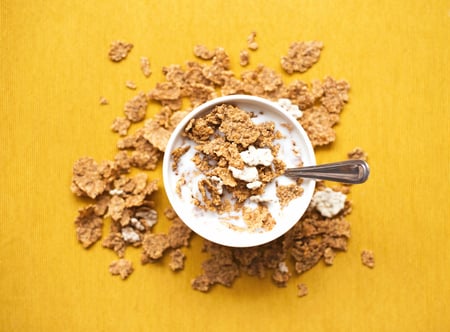Fiber: Don't Believe the Hype
by Marybeth Spanarkel, M.D., on August 24, 2018
What do we really know about fiber and colon health? Certainly, if you believe media reports and marketing campaigns, you might think that fiber was the panacea for a wide variety of ailments. Cereals, supplements, and snack bars labeled as “rich in fiber” are touted to be healthy for your colon.

But let's analyze the purported benefits of fiber for the treatment or prevention of common conditions.
- Constipation. If you complain to your doctor about constipation, you will most likely be advised to add fiber to your diet. Fiber products make bowel movements larger and bulkier, and the subsequent distention of the colonic wall stimulates receptors to initiate a propulsive movement. Fiber also pulls water into the colonic lumen, so bowel movements are softer. But too much fiber also causes excessive gas and bloating and thus can be counterproductive. Excess fiber can actually cause constipation.
- Irritable Bowel Syndrome. IBS is a functional GI disorder that is more specifically classified based on the main symptom (either diarrhea or constipation). Fiber is often recommended as a first-line treatment for irritable bowel syndrome; however, studies have failed to demonstrate efficacy. In fact, intracolonic fermentation of fiber can actually worsen the bloating and excessive gas that plaque many IBS patients.
- Colon Polyps / Colon Cancer. For the last few decades, fiber in the diet was touted as a way to reduce the number of colonic polyps and help prevent colorectal cancer. Many marketing companies capitalized on this recommendation, as seen in ads for cereal products and dietary supplements. Interestingly, well designed longitudinal studies have NOT supported a correlation between fiber and the prevention of colorectal cancer.
- Weight loss. Some studies suggest that ingestion of excessive fiber results in gastric distention and thus reduces appetite. Results vary though and can depend on the type and amount of fiber consumed.

Fiber is a relatively harmless additive, but there some additional negative consequences of excessive fiber intake.
- Gas. Fiber is known to produce excess abdominal bloating, distension, and gas.
- Dilation of the colon. Although there are no scientific studies to document this, some experienced colonoscopists propose that excessive fiber intake, over long periods of time, may lead to colonic distention, enlargement, and increased redundancy. This can result in chronic bloating and may make the colon more difficult to examine during a colonoscopy.
There is no question that a balanced diet with an appropriate level of fiber is essential to good health. But the consumption of excess fiber may benefit advertising firms more than it does the individuals ingesting it.


